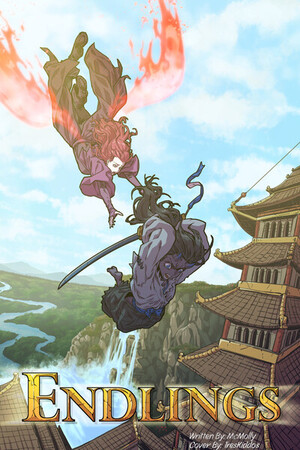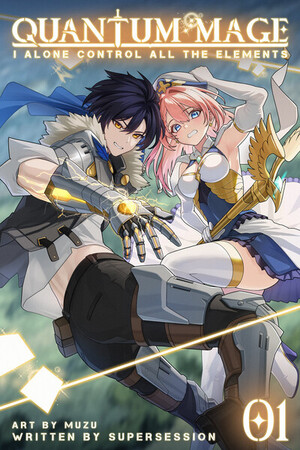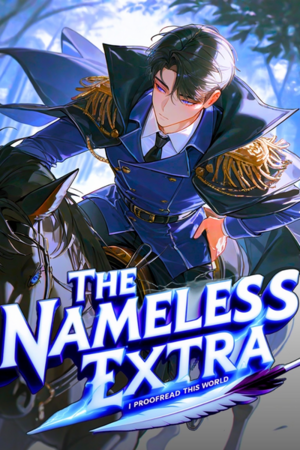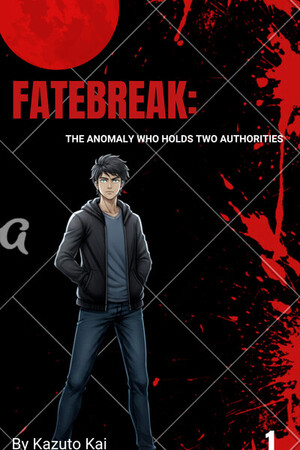Chapter 1:
Chapter 1
Endlings
A storm was brewing.
No, that’s not quite right. Brewing is for beers and coffee, and sometimes storms, true enough, some storms do brew—but not this one. This storm is old; it comes with a vintage. Like a wine.
Observe the robustness of its profile; the gray-black clouds splashed across the sky, roiling, rumbling, spreading like a Rorschach on a picnic blanket.
Taste its aroma on the air; every freshman poet’s favorite word—petrichor. Wet stone on the wind, nature’s answer to spearmint gum. Pleasant in passing but stuffs up the nose when it lingers.
Consider its year; bottled and shelved and left to seethe in the dark, alone. This storm has aged like a grudge.
So, no. This storm was not brewed. It did not manifest, nor did it coalesce, or effervesce, or recrudesce. None of the -esces. It simply was, and no one would be able to recall a time when it wasn’t. Which is why, if anything, it would be most appropriate to say that a storm was, and had for a very long time been, fermenting.
Pinot La Mort.
Let’s meet our sommeliers.
✦•······················•✦•······················•✦
First of all there was Bina.
Right there. On the hill. Squint, she’s a bitty thing. There, running down through the Tohoku countryside, past farm fields and under mountain shadows, towards a rustic little village called Totono.
Bina is not a sommelier. Fifteen-year-olds can’t drink, and likening a child to a wine—or in fact any food or beverage—would be entirely inappropriate, so instead we’ll abandon the analogy and just see her as she is: Bina Kikuro, a narrow, knobbly-jointed girl with ungovernably long hair and a gap between her front teeth, which had troubled her with a lisp until she was almost fourteen.
She was moving at full tilt, which was quite a feat for her. See, there had been a miscommunication early on in her development, between the mind and body. The mind was quite certain it would belong to an Olympic sprinter, or maybe some kind of wildlife explorer. The body, unfortunately, had already purchased an assortment of chronic maladies with a no-return policy.
Asthma, silent reflux, an immune system on holiday, a cavalcade of allergies, a lingering congestion that leant her voice a particularly bullyable nasality, and a fear of heights that was strictly physical, which she really did try to ignore. Just the highlights.
And still, run she did. Down the hill and onto the dirt roads of the village, lugging a full backpack and chugging down air like it was going out of style.
There was no time to waste; the rain was on her heels and her whole world was ending. Figuratively—for now.
Her house was small and boxy, not cramped but cozy, and plenty good enough for two people who weren’t overly fussy. At least until the storms rolled in. Then the roof got a bit leaky, the power would get anxious, and the plumbing became devastatingly inconsistent.
Her grandpa was sat outside in his rocking chair, tobacco pipe in his lips, fiddling helplessly with a lighter. He was a hunched old goat, all knees and elbows like she was. He raised a bushy eyebrow as she came to a wheezing halt on the porch.
“Well hey little lady,” he said. “What’s the rush?”
She fished out her inhaler, took a few puffs, and waited impatiently for her lungs to catch up with her thoughts.
“They’re gonna…expel…Renko!”
“Oh dear,” he said, and went right back to struggling with the lighter.
“Yeah! We gotta—” she tried to get up, wobbled, caught the railing. “We gotta tell miss Hurane!”
“You know mister Tokuo? Down at the grocery?” He asked, like she hadn’t said anything. “He just gave me this. Said it’s what he uses. Can’t—hm—seem to get it to go.”
“Grandpa!”
“Be a dear and give me a hand, would you?”
He held the lighter out to her, smiling in that crooked, half-tired way that she knew meant he was fully awake, aware, and giving her the runaround. Unfortunately, he played psychological games of attrition, and it was always better to give up before he started having fun.
She snatched the lighter and flicked it once. The flame sprouted instantly and obediently to life, and she lit his pipe with a resigned sigh.
“You’re a natural, Binny,” he said.
“The doctor said it’s bad for you.”
“Terrible. Turns your insides black. Nasty, nasty habit. Never do it.”
“It’d probably kill me.”
“Bah. People do all sorts of things that kill’em. Better smoke this now just to make sure you can’t, later. Least I can do, martyr that I am.”
He sat back in his chair and blew a little ring of smoke into the air, staring out at the fields and foggy mountains that fenced their little hamlet off from the rest of the world. You couldn’t take a train to Totono; it was one of those places that got added to maps by hand, and made mailmen angry.
Above, the armada of angry clouds drew closer.
Meteorologists, who sometimes had all the foresight of bingo announcers, had gone from being utterly blindsided by the storm, to confidently insisting it would sweep northwards, scrape along the coast, and fizzle out before it reached Hokkaido. Two days later, and Sendai was sounding the alarms. Oops.
Now here it was, veering west like a bloodhound after a rabbit.
“Alright,” grandpa said. “Let’s get on before the rain hits.”
Her strength returned, Bina helped him out of his chair. Most old people, she knew, did not like young people reminding them that they were old, even if they meant well—which she tried to as often as she could.
Her grandpa didn’t care that he was old, but he found it endlessly amusing that other people did.
Together they got into the Kei truck he kept parked beside the house. Bina took the driver’s seat, because her grandpa hated driving, and because there were no police in the village to upset, and anyway plenty of people around here didn’t have licenses. She slipped her foot into a geta sandal attached to the gas pedal, so she could reach it.
The truck rumbled and gasped to life in a way that made her feel a kinship with it. They puttered off the lawn and into the village.
Totono was a labor of love, but love didn’t pay for zoning rights or construction crews, and so it had only a few paved roads running through its center, and the rest were lovingly laid with gravel or packed-down dirt. The buildings were old, but charming; a fistful of shops with no signs because everyone knew what they were about already, a restaurant or two, a laundromat grafted irresponsibly onto a bar, and a local grocer with a pachinko machine out front.
Windows were shuttered, doors locked. The village was battening down for the storm. Bina would have been nervous if her mind wasn’t preoccupied.
“Tutoring got cancelled,” she explained, speaking quickly enough to strain herself even though she was sitting down. “And so I stopped by miss Nanami’s room, to pick up Renko’s homework for her, so she won’t be behind when she comes back, and you know, I’d done that before and it wasn’t a problem. But miss Nanami said Renko wasn’t on the roster anymore! So I went to the principal’s, ‘cause I thought maybe they’d made a mistake when they suspended her, ‘cause she didn’t get taken off the roster last time, and he said—he said it’s not a mistake! He said she doesn’t go to school there anymore!”
“Is that right?” Grandpa said. He took another puff from his pipe and blew out the window. He wasn't entirely sure what 'asthma' was, but he did his best to mindful of it. Mostly.
“And he wouldn’t tell me why! And you have to have a reason—like, a good reason—to kick someone out of school just like that! But he said if I kept asking him I’d get detention, and he knows if I get a demerit I can’t go on the Sendai trip next month!”
“Sendai might not be all that much to look at next month anyway, if this storm’s all it’s cracked up to be.”
“Grandpa that’s not the point!”
He looked at her, carefully, like someone finding an underpriced gem at an antique shop. “Didn’t you used to need a little stack of books to see over the dash?” he said wistfully. “When did you go and get so big, Binny?”
“I’m like, almost the shortest person in my class,” she said.
He cackled. “Hey, almost is an improvement.”
“Not the point!” she repeated. “It’s—never mind, we’re here. Miss Hurane! Miss Hurane!”
The Hurane household sat on the far side of the village, closer to the mountains. It was squat and sturdy, like a brick, and had fully embraced the idea that while good fences did make for good neighbors, distance made for the best, and why settle? It sat like an isolated little island in sea of grass, at least half a mile from anyone else. The quietest place in a place that was already quieter than most people would find comfortable.
Miss Hurane was up on a step ladder outside, hammering planks over the windows. The last time a big storm hit Totono, the rain had leaked through and ruined her favorite rug. Now, she treated her home like a fortress readying for siege.
She didn’t look much like a ruralite. The floral shirt, the earthy cardigan and long, frumpy skirt gave her the mien of a grandmother, or a librarian, though she was neither. When she saw them pull up, her face broke out into pure, unfiltered joy.
“Binny!”
Before Bina could shut her door, the woman had hopped down, dashed over, and scooped her up with a grace and strength that belied her matronly appearance.
“Hello Miura,” grandpa said, sidling over.
Miss Hurane set Bina down, then snatched the pipe from grandpa’s mouth, flicked the contents out, and smiled warmly. “Hello, Endou.” She hugged him more gently, but with no less affection. “I thought the doctor told you to quit.”
“She lit it,” he said, pointing at Bina. “The little enabler.”
“Hey!”
“Well, none of it here,” she said, and handed the pipe back. “I caught Renko with a cigarette last week. I’ve had to watch her like a hawk.”
Bina jolted like she’d been shocked. “Miss Hurane!” she said, having nearly forgotten the reason she came. “Listen! Listen! I think they’re gonna expel Renko from school!”
“I know, honey.”
“Tutoring got cancelled, so I went to miss Nanami’s room to—you what?”
Miss Hurane sighed in the sort of way that usually precedes admissions that the tooth fairy isn’t real, or that the family dog did not, in fact, move to a farm in the country.
“Binny, sweetheart,” she said carefully. “She broke that poor boy’s arm. They told me the next day it was unlikely she’d be allowed back. Frankly, we’re lucky no one’s pressing charges.”
Bina blinked. Somehow, it hadn’t occurred to her that miss Hurane would be in the loop somewhere between the school administration and her own daughter’s expulsion.
“So…wait. So, you know, and—okay so wait, does Renko know?”
“Not yet.”
“Renko!” Bina shrieked, and went barreling into the house. “Renko!”
The sturdy walls swallowed up the noise, and there was quiet, and the invisible weight of parental exhaustion. Then, the impotent clicking of grandpa’s lighter as he tried to strike it over his pipe. It wouldn’t go, and he gave up.
“Think I’ll just stick to matches,” he said sullenly. “All this junk. Bad enough riding around in the big metal beast. I miss horses, I tell you. Horses and matches.”
“You never had a horse,” said miss Hurane, peeking in through the gap between the planks on her window. “This probably won’t end well.”
“Everyone else did, and they seemed to get on just fine without trucks, and phones, and societal media. And lighters. They got on perfectly fine with matches.”
“It’s a big world. Times change.”
“Never as much as you think.”
There was a sliding sound, a rustling as Bina shot out of the back porch and off into the field behind the house. Miss Hurane set down her hammer and nails.
“I should go with her.”
“Miura.”
She gave him her attention. He’d earned that as he liked it.
“We should talk, before the storm hits. About Bina.”
“What about her?” Her voice took on a worried edge, like a warbling blade. She’d always fussed over the girl like that—it was one of the reasons he liked her. “Is she okay?”
“Oh she’s fine. Fine girl, Bina, fine all around. Yes. I wanted to talk about leaving her with you. You know, when my time comes.”
He wasn’t a particularly delicate speaker, but miss Hurane was still surprised by his bluntness. “I see,” she said carefully. “Is that time…coming?”
“Ah. Who really knows with these things?”
“At least one person.”
Grandpa chuckled, a throaty, raspy heckle of a sound. “Sure, at least one.”
“What’s going on, Endou?” she asked. “What happens when the storm hits?”
He settled into a smile, small but mischievous, and looked up at the clouds. Impossibly, they seemed to be looking back at him.
“It’ll rain, I’m sure,” he said. “After that…I honestly have no idea.”




Please sign in to leave a comment.